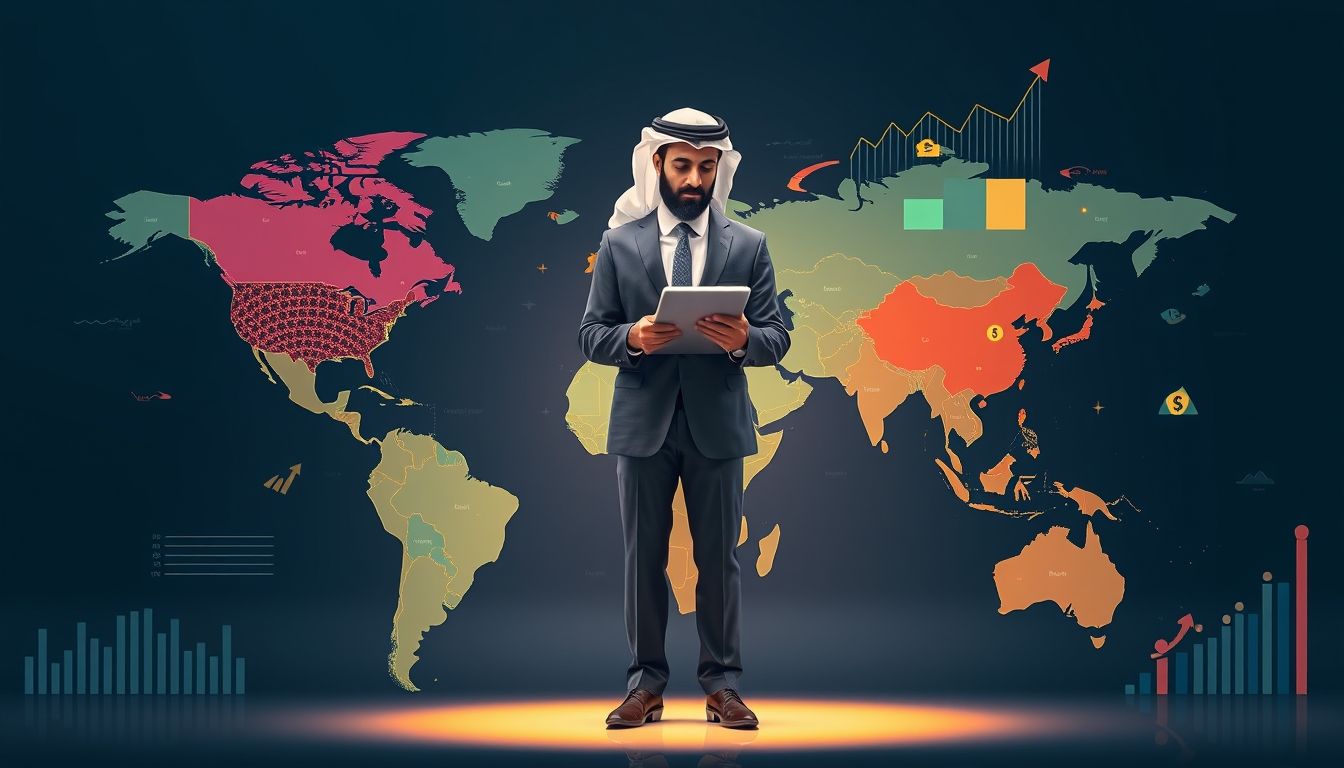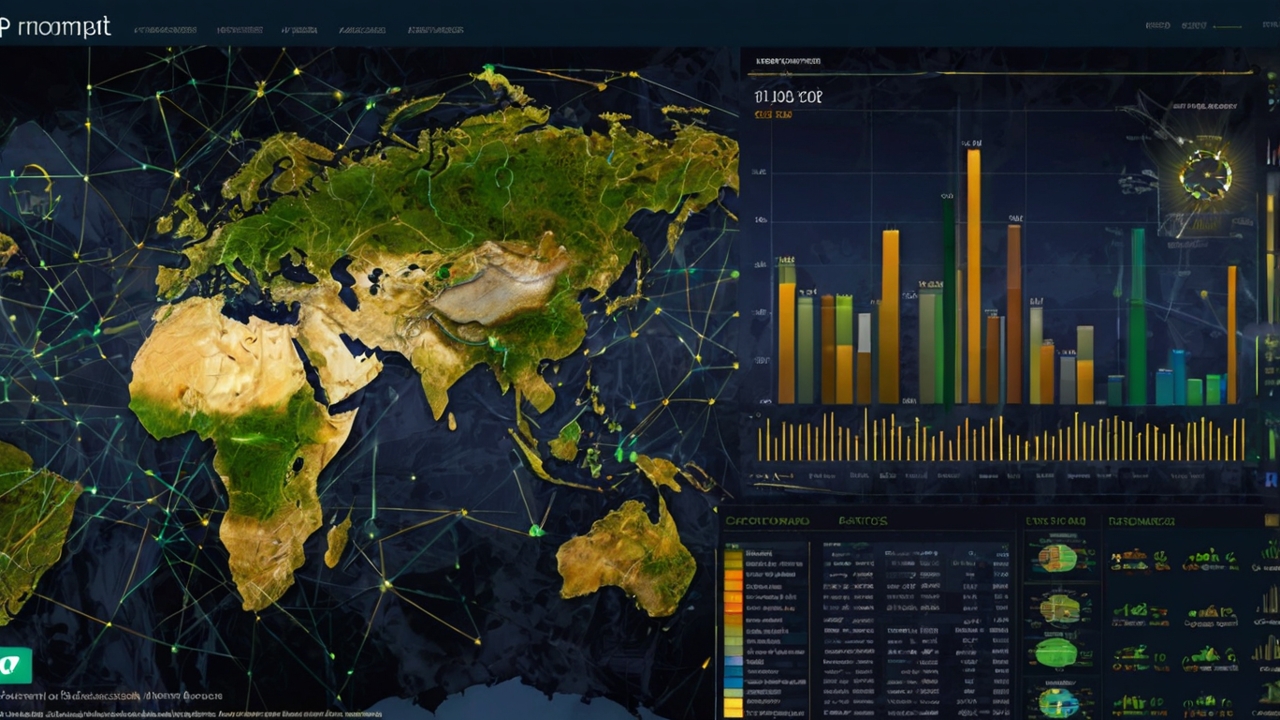International Investing for the Arab Investor: Your Path to a Diversified and Profitable Portfolio
In the ever-changing world of finance and investing, investors are constantly seeking ways to enhance their returns and mitigate risks. One effective strategy that has gained significant popularity is international investing, particularly the geographic diversification of investment portfolios. For the Arab investor, international investing offers unique opportunities to overcome local constraints, tap into global growth, and protect wealth.
Chapter 1: Why International Investing Matters for the Arab Investor
International investing is not just an option; it's a necessity for the savvy Arab investor. Here's why:
- Diversification and Risk Reduction: Relying on a single domestic market exposes the portfolio to specific economic and political risks. Investing in multiple markets reduces these risks.
- Access to Growth Opportunities Unavailable Locally: Some industries and sectors may be more developed in other markets. International investing provides access to these opportunities.
- Hedging Against Currency Fluctuations: Investing in different currencies protects against the impact of local currency devaluation.
- Benefiting from Different Economic Cycles: Different markets go through different economic cycles. Investing in multiple markets allows you to capitalize on growth in one market even if the local market is struggling.
Chapter 2: Understanding the Risks and Challenges in International Investing
International investing comes with a set of risks and challenges that the Arab investor must understand:
- Currency Risk: Fluctuations in exchange rates can affect investment returns.
- Political Risk: Political changes in other countries can affect investments.
- Market Risk: Each market has its own characteristics and volatility.
- Transaction Costs: International transaction costs may be higher than domestic costs.
- Taxes: International taxes can be complex and vary from country to country.
Chapter 3: Strategies for Geographic Diversification of Investment Portfolios
There are several ways to diversify a portfolio geographically:
- Direct Investment in Foreign Stocks and Bonds: This requires knowledge of foreign markets and the ability to analyze foreign companies.
- Investing in Exchange-Traded Funds (ETFs) and Index Funds that Track Global Markets: This is an easy way to diversify a portfolio at a low cost.
- Investing in Mutual Funds that Focus on Emerging Markets or Developed Markets: This method allows the investor to benefit from the expertise of professional fund managers.
- Investing in Foreign Real Estate: This can be a good long-term investment, but it requires careful study of the real estate market in the country in question.
Chapter 4: Choosing the Right Markets for Investment
Choosing the right markets for investment depends on several factors:
- Economic Growth: Look for markets that are experiencing strong economic growth.
- Political Stability: Avoid markets that suffer from political instability.
- Business Environment: Look for markets that have a favorable business environment.
- Valuations: Look for markets that appear undervalued.
- Sector Diversification: Choose markets that offer good sector diversification.
Chapter 5: International Investment Instruments Available to the Arab Investor
Many international investment instruments are available to the Arab investor:
- Foreign Stocks: Foreign stocks can be purchased directly through an international financial broker.
- Foreign Bonds: Foreign government or corporate bonds can be purchased.
- Exchange-Traded Funds (ETFs): ETFs allow investment in a wide range of foreign stocks or bonds.
- Mutual Funds: Mutual funds allow investment in a diverse range of foreign assets with professional management.
- Foreign Real Estate: Foreign real estate can be purchased for investment or rental purposes.
Chapter 6: Taxes and Laws Related to International Investing
It is important to understand the taxes and laws related to international investing:
- Income Taxes: Profits from foreign investments may be subject to taxes in the country where the investment was made and in the country where the investor resides.
- Capital Gains Taxes: Capital gains from the sale of foreign investments may be subject to taxes.
- Double Taxation Avoidance Agreements: Agreements may exist between countries to avoid double taxation.
- Foreign Exchange Laws: Laws may exist that limit the transfer of funds abroad.
Chapter 7: Practical Tips for the Arab Investor in International Investing
Here are some practical tips for the Arab investor who wants to invest internationally:
- Start with a Small Amount: Don't invest all your money in foreign markets at first. Start with a small amount and increase it gradually.
- Research Well: Before investing in any market or asset, research well and understand the risks and rewards.
- Consult a Financial Advisor: A financial advisor can help you choose the right investments for your goals and risk tolerance.
- Be Patient: International investing is a long-term investment. Don't expect to make quick profits.
- Review Your Portfolio Regularly: Review your portfolio regularly and make necessary adjustments.
Chapter 8: Successful Examples of International Investment from the Arab World
There are many successful examples of international investment from the Arab world. For example, many large Arab companies invest in global markets, such as oil and petrochemical companies and telecommunications companies. There are also many individual Arab investors who invest in foreign real estate, stocks, and bonds.
Chapter 9: Technology and its Role in Facilitating International Investing
Technology plays a significant role in facilitating international investing:
- Access to Information: The internet provides easy access to information about foreign markets and companies.
- Online Trading: Trading in foreign markets can be done online through international financial brokers.
- Robo-Advisors: Robo-advisors can provide investment advice based on your goals and risk tolerance.
Chapter 10: The Future of International Investing for the Arab Investor
The future of international investing for the Arab investor is promising. With increasing globalization and the availability of information, international investing will become easier and more accessible. Arab investors should take advantage of these opportunities to diversify their investment portfolios and achieve better returns.
Disclaimer: This article is for informational purposes only and should not be considered financial advice. You should consult a financial advisor before making any investment decisions.




